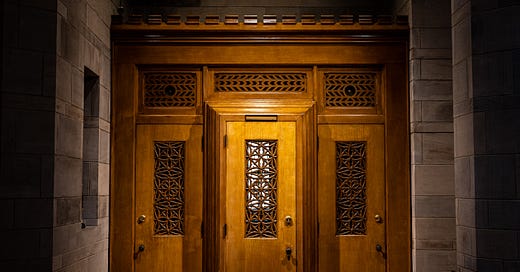Why Lent? #3: Confessing & Concealing
This is the third and final Lenten guest post by my friend, and fellow preacher, David Ayres from Bammel Church. David is a thoughtful minister and gifted communicator. Consider him for your next event!
This is the third and final installment of our series, “Why Lent?” In the first article of this series, I argued that Lent confronts us with the parts of the gospel that we would prefer to avoid. Namely, we are confronted with the two chief enemies of humankind: death and sin. Because a gospel that does not deal with these two existential enemies is really no gospel at all.
So, in part two of this series, we took a long hard look at the inevitability of death – and why being reminded of that fact is, surprisingly, a profound gift. Doesn’t that sound like a cheery read? Yet, as uncomfortable as that conversation might have been, today’s topic is even less popular. Today, we need to talk about sin.
Specifically, we need to talk about our sin. Which, if we are being honest, is the sin we find least interesting. As much as we seem to enjoy being scandalized by sin in other’s people’s lives, our interest dissipates considerably the moment our own sin is in the spotlight.
To be fair though, our aversion to acknowledging our sin is often a learned behavior. At least, I know it was for me. Speaking as a Protestant, I consider the loss of the regular practice of confession to be among the most regrettable outcomes of the Protestant Reformation. Whatever we may think about the spiritual necessity of confessing our sins to a priest, the practice of confession itself is undoubtedly good for the soul. And as much as we profess to believe in “the priesthood of all believers,” in practice, it often looks more like the priesthood of no believers.
The wisdom behind practicing confession is apparent when we reflect on what went wrong in the garden of Eden. The first impulse Adam and Eve felt after eating the forbidden fruit was to cover themselves; the next was to hide from God (Gen. 3:7-8). Not much has changed since then. When it comes to sin, our first instincts are to cover and hide. Denial, defensiveness, deflection, distraction – they all are born from the primal urge to cover and hide. And confession is a direct assault on those counterproductive instincts.
Unfortunately, our spiritual communities can easily become co-conspirators in our cover-up efforts. At times, our theology of grace amounts to little more than a polite “don’t ask, don’t tell” policy. However, even that is preferable to the increasingly common obsession with church discipline, that almost always parades itself as a “serious” commitment to “discipleship.” Inevitably, this creates a system that actually incentivizes people to hide their sin. What is intended to bring accountability (or control, if you’ll forgive my cynicism), ends up simply creating a community of good liars.
Either way, whether we veer towards legalism or permissiveness, our sin remains safely concealed, even from ourselves. Without confession, in some form or another, our churches never become “places where human misbehavior is brought out in the open, faced, and dealt with.”[1] Without confession, sin might be shamed or avoided, but it is never overcome.
That is why I am so thankful for those in my life who have had the courage to confess their sins in appropriate ways. They are a gift to the church. I think of one of my current elders, who has publicly shared his journey of recovery from alcoholism. He has told me on multiple occasions that he will not step down as an elder until someone else models the same level of vulnerability with the sin in their life. He knows that if we want to be a church that offers healing to sinners, then we must begin by confessing our own sins – not someone else’s.
That is uncomfortable work, to be sure. We would prefer to remain in hiding. But as Christ taught us, “there is nothing concealed that will not be disclosed, or hidden that will not be made known” (Matt. 10:26). One of the great gifts that Lent offers us is an opportunity to disclose what we would have otherwise kept concealed. All so that we might rejoice in the coming of our Lord, rather than hiding ourselves in fear.
[1] Eugene Peterson, from the introduction to the Book of James in The Message




